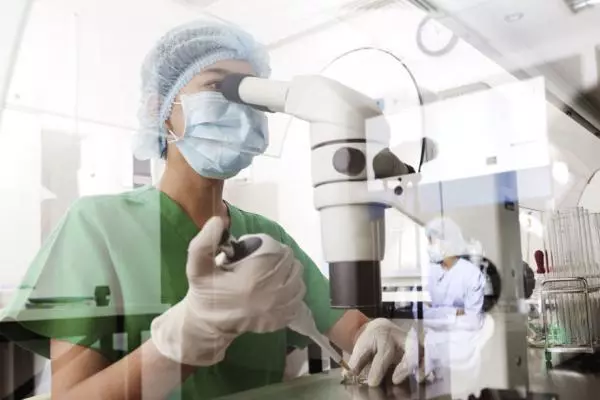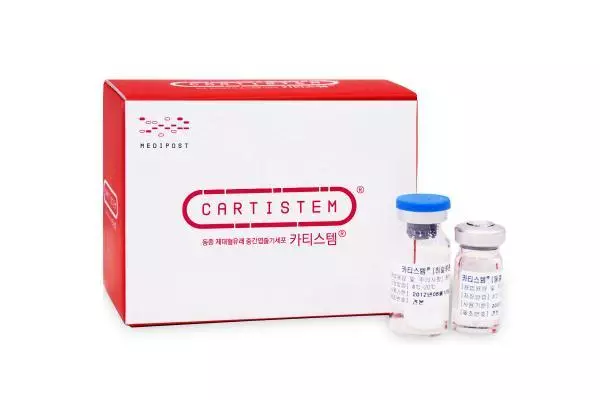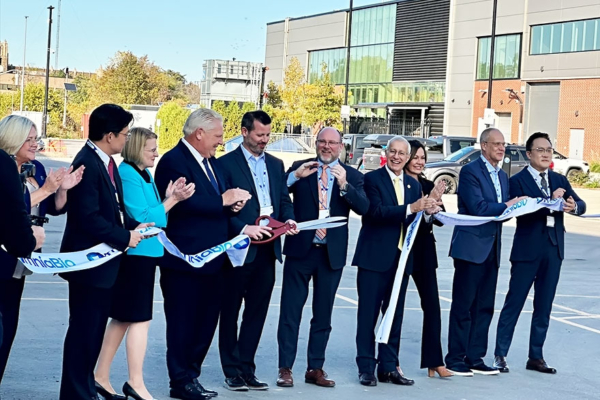· Joint research by Professor Choi Nam-hong of Eulji Medical Center, Eulji University and Director Song Jun-seob of Gangnam JS Hospital
· Umbilical cord blood-derived stem cell therapy expected to emerge as the leading treatment for degenerative osteoarthritis caused by aging
MEDIPOST (CEO Oh Won-il) announced on May 2nd that the clinical study results using CARTISTEM®, an umbilical cord blood-derived stem cell transplantation surgery, have been published in the SCI-level academic journal .
The paper, which documents cases of CARTISTEM® treatments for knee cartilage defects, was presented by Professor Choi Nam-hong of Eulji Medical Center, Eulji University and Director Song Jun-seob of Gangnam JS Hospital.
This study involved a total of 85 adult men and women with an average age of 56.8 years and an average knee cartilage defect size of 6.7 cm2. Over a 3-year follow-up observation period after surgery, significant improvements were demonstrated regardless of cartilage defect size or age in key indicators of osteoarthritis, including overall pain and functional progression (WOMAC), subjective pain relief (VAS), and joint function improvement (IKDC), compared to before the surgery.
Additionally, one year after the surgery, Magnetic Resonance Imaging (MRI) confirmed the regeneration of cartilage back to the normal state, and no cases of discomfort, infection, or additional surgeries were reported from the surgical site.
Conventional treatments for knee cartilage defects include Autologous Chondrocyte Implantation (ACI), which involves harvesting, culturing and re-implantation of the patient‘s own cartilage tissue. However, such treatment is costly, time consuming, and often not suitable for elderly patients due to the difficulty of obtaining an adequate number of healthy cartilage cells. In contrast, CARTISTEM® is a pre-manufactured product that eliminates the need for a patient-specific harvesting procedure. This enables consistent product quality and treatment efficacy regardless of the patient‘s condition. This makes CARTISTEM® a superior option that addresses the previous disadvantages of conventional therapies.
Director Song Jun-seob of Gangnam JS Hospital stated, “This paper demonstrates that CARTISTEM® can be the optimal treatment option for elderly patients with knee cartilage defects, for whom Autologous Chondrocyte Implantation (ACI) is not possible,” He also emphasized, “I hope this serves as an opportunity to increase the trust among medical professionals and patients in umbilical cord blood-derived stem cell transplantation techniques.”
A MEDIPOST representative stated, “This paper further proves the safety and efficacy of CARTISTEM®’s use of stem cells from neonatal umbilical cord blood,” and declared, “We will continue to work toward making CARTISTEM® the primary treatment option for patients with knee osteoarthritis (degenerative arthritis).”
[Glossary]
WOMAC (Western Ontario and McMaster Universities Arthritis Index): A questionnaire tool for arthritis and joint diseases that quantifies the degree of functional impairment in three domains: pain, stiffness, and difficulty performing daily activities. It consists of 24 items, evaluated on a 5-point scale, with higher scores indicating greater pain, stiffness, and difficulty in performing daily activities.
VAS (Visual Analog Scale): A method for assessing the intensity of subjective pain, as one of the pain scales. It features a line with “no pain” on the left end and “unbearable pain” on the right, with the patient recording the intensity of their pain.
IKDC (International Knee Documentation Committee): An index for evaluating knee functionality and activity, measuring the overall knee function score for patients. The questionnaire investigates three categories: symptoms, sports activities, and knee function.
Autologous Chondrocyte Implantation (ACI): A surgical treatment method that involves harvesting of cartilage tissues that are not in contact with the joint surface, culturing of the cells for 4-6 weeks to obtain a sufficient amount of cartilage cells, and application of the cultured cells to the area of cartilage defect using a syringe together with a periosteum scaffold. ACI cell therapy product using cartilage cells. It is primarily used for patients with only cartilage defects.





